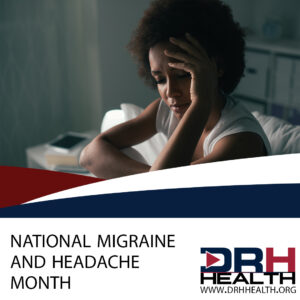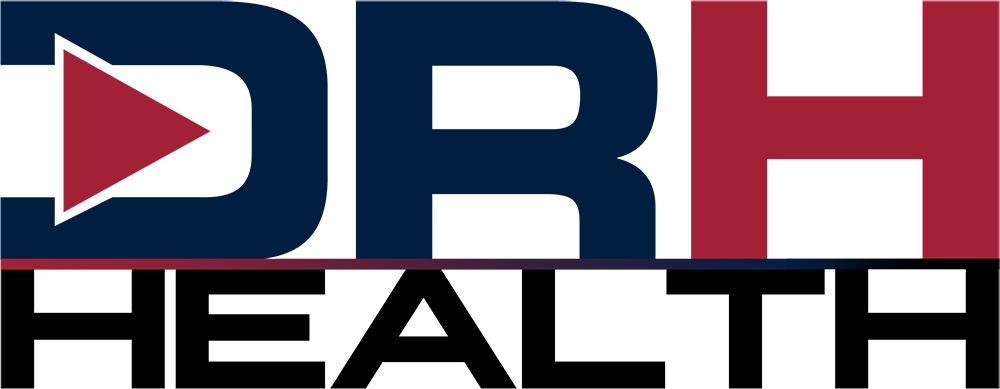National Migraine and Headache Awareness Month
Have you ever dealt with pain or pressure in your head or face? You may have been experiencing a headache. Knowing whether you have a tension headache, sinus headache, or migraine headache will help you choose an appropriate treatment plan for relief.
What is a Headache?
Headaches typically cause pain in your head that can be described as pressure or aching. The pain can range from mild to severe and last anywhere from 30 minutes to a week. Pain from headaches can occur in the forehead, temples, and the back of the neck. Factors that can lead to headaches include stress, anxiety or depression, a physical injury, or even changes in the weather.
Primary headaches include:
- Tension is the most common type of headache and feels like a constant ache or pressure around the head or the back of the head or neck.
- Sinus – these are caused by the build-up of pressure in the sinuses of the nose, forehead, and
 cheeks, leading to a deep pain that gets more severe with sudden movements or straining of the head.
cheeks, leading to a deep pain that gets more severe with sudden movements or straining of the head. - Cluster – these are the most severe type of primary headaches. They come in a group or cluster, usually in the spring or fall, occurring one to eight times per day which may last two weeks to three months. The headaches may disappear altogether for months or years, only to recur later.
Most tension-type headaches are easily treated with over-the-counter medications, including aspirin, Ibuprofen (Advil, Motrin), or acetaminophen (Tylenol). Sinus headaches can be relieved by using a humidifier, saline sprays, or over-the-counter medications like antihistamines and decongestants.
What is a Migraine?
Migraines are a chronic condition, and typically the cause is unknown. Compared to headaches, migraines are severe and often have other symptoms that go along with head pain. They tend only to affect one side of the head, and the pain and throbbing can be so severe that it can make performing everyday tasks exceedingly difficult. Other symptoms may include:
- Nausea
- Increased sensitivity to light, sound, or smells
- Temporary vision loss
- Seeing spots or flashing lights
- Dizziness
- Pain behind one ear or eye, or in the temples
- Extreme fatigue
There is no permanent cure for migraine headaches. But with treatment, attacks can be relieved and possibly decrease the severity and frequency of headaches.
These treatments may include:
- Over-the-counter pain relievers such as acetaminophen, aspirin, caffeine, and ibuprofen.
- Triptans may be in pill form, tablets that dissolve on the tongue, a nasal spray, or a skin patch.
It is essential to see your health care provider if any of the following occur:
- A headache that follows a head injury.
- A headache along with dizziness, speech problems, confusion, or other neurological symptoms.
- A severe headache that comes on suddenly.
- A headache that gets worse even after you take pain medications.
Amber Hill, APRN-CNP
Ryan Family Care
